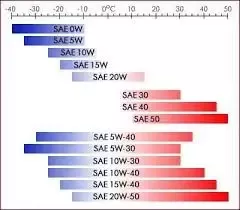- Low Oil Pressure/Oil Pressure Warning Light:
- Your oil pump is responsible for pressurizing the oil system. When it starts to fail, your vehicle’s oil pressure drops.
- If your engine has an oil pressure gauge, you’ll notice low oil pressure. Alternatively, an oil pressure warning light may illuminate your dashboard.
- Important: As soon as this light turns on, stop driving. Low oil pressure can lead to severe engine damage, costing thousands of dollars. opt for a tow instead.
- Increased Engine Temperature:
- A faulty oil pump disrupts proper oil circulation within the engine.
- One of the first signs is a spike in your engine’s temperature.
- If you continue driving with a malfunctioning oil pump, your engine May overheat.
- Engine Noises:
- When the oil pump fails, various engine components suffer from insufficient lubrication.
- Common locations for noises include the oil pump itself and the valve train.
- Without proper lubrication, metal-on-metal contact occurs, resulting in damaging noises.
- The Vehicle Won’t Start:
- Some newer vehicles have a low oil pressure switch tied directly to the ignition.
- If this switch detects oil pump issues, it prevents the engine from starting.
- This feature protects your engine from further damage while you address the problem.
Now, regarding the specific question about knocking noise: Yes, a bad oil pump can lead to engine knock. If you’re hearing knocking sounds due to a malfunctioning oil pump, it’s likely related to rod knocks. These knocks can result in expensive repair bills. Therefore, never run the engine with a bad oil pump.
Remember, maintaining a healthy oil system is crucial for your engine’s longevity and performance. Regular oil changes and monitoring oil pressure are essential preventive measures. 🚗💡


